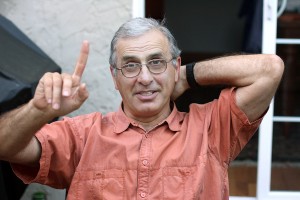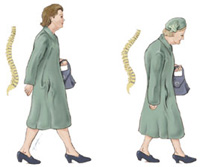Resveratrol is a powerful antioxidant; but is resveratrol effective in humans?
- Quack watch says: don’t buy into the hype that resveratrol is effective in humans.
- WebMD claims that there would not be enough medical evidence to say that the average person should supplement with resveratrol to receive benefits.
Despite these recommendations the following evidence supports that resveratrol is indeed effective in humans.
Resveratrol effective in humans: high blood pressure patients
First of all, a 2017 study of high blood pressure patients examined resveratrol supplementation with two groups, 46 stage 1 hypertension patients and 51 stage 2 hypertension patients. Stage 1 hypertension had a systolic blood pressure of 140–159 mmHg and a diastolic blood pressure of 90–99 mmHg. Stage 2 hypertension had a systolic blood pressure of 160–179 mmHg and a diastolic blood pressure of 100–109 mmHg. Analysts divided both stage 1 and 2 subgroups into two groups, one receiving regular antihypertensive medication, and the other group receiving regular antihypertensive medication plus Evelor. Evelor is a micronized formulation of resveratrol. The trial lasted two years.
Blood pressure lowering effect of resveratrol
The purpose of the trial was to determine the effect of resveratrol. added to the regular antihypertensive medication (or not) to see whether it had blood pressure lowering effects. The interesting result showed that the resveratrol addition was sufficient to bring the blood pressure down to normal levels with only one antihypertensive drug. The control group without resveratrol needed two or three drugs to get the blood pressure under control. In addition, liver function tests showed that resveratrol normalized negative side effects of the antihypertensive drug on the liver. Both liver enzymes, glutamate-pyruvate transaminase (SGPT) and gammaglutamyl transferase (Gamma-GT) were normal in the resveratrol group.
Resveratrol effective in humans: diabetes patients
Diabetes patients can get help with resveratrol. Resveratrol, the bioflavonoid from red wine is a powerful anti-inflammatory. This antioxidant has several other effects, which make it challenging to measure each effect by itself. Another group of investigators managed to simultaneously measure these effects. They found that resveratrol lowered the C-reactive protein by 26% and tumor necrosis factor-alpha by 19.8%. Resveratrol also decreased fasting blood sugar and insulin; in addition it reduced hemoglobin A1C and insulin resistance. The recommended daily dose of resveratrol was 1000 to 5000 mg.
Resveratrol effective in humans: improves bone density
Furthermore, resveratrol improves bone density in men: 66 middle-aged obese men with an average age of 49.3 years and a mean body mass index of 33.7 were recruited for this randomized, double blind, placebo-controlled trial. The purpose was to study whether there would be changes in bone turnover markers (LDH, an enzyme involved in bone turnover), but also whether bone mineral density (BMD) would increase. The researchers gave resveratrol to a high group (1000 mg per day), a low group (150 mg) and the third group received a placebo (fake pills). The end point was an elevation of the bone alkaline phosphatase (BAP). The investigators measured this in the beginning of the study and at 4, 8 and 16 weeks.
Difference between high and low dose resveratrol
The high group of resveratrol had a 16% increase of the BAP throughout the study and a 2.6% in lumbar spine bone density (measured by a trabecular volumetric method). The low resveratrol group showed no bone restoring effect. MJ Ornstrup, MD, the lead investigator said that this was the first time that a clinical team has proven that resveratrol can serve as an anti-osteoporosis drug in humans. She added that resveratrol appears to stimulate bone-forming cells within the body.
Resveratrol effective in humans: anti-aging effects
Finally, the Nurses’ Health Study showed that both a Mediterranean diet and resveratrol can elongate telomeres.
The fact that you can have a longer life with a Mediterranean diet is common knowledge for some time. But now a study has shown that the reason for a longer life is the fact that telomeres get elongated from the Mediterranean diet. Telomeres are the caps at the end of chromosomes, and they get shorter with each cell division. This is the normal aging process.
Important information from the Nurses’ Health Study
The finding of elongated telomeres comes from the ongoing Nurses’ Health Study that started enrolling subjects in 1976. At that time 121 700 nurses from 11 states enrolled in the study. In 1980 participants filled in diet sheets to determine who was adhering to a Mediterranean diet. The researchers accepted 4676 middle-aged participants in this study. This diet consists of a combination of vegetables, legumes, fruits, nuts, grains and olive oil. They also consumed fish and lean meats. The control group followed a regular diet. Between 1989 and 1990 blood tests were obtained to measure telomere length in white blood cells. It is known that smoking, stress and inflammation shortens telomeres.
Slowed telomere shortening
The lead author Marta Crous-Bou stated that overall healthy eating was responsible for longer telomeres in comparison to the control group. But the strongest association was in women eating a Mediterranean diet in comparison to the controls. For the best diet adherence score there was a 4.5 year longer life expectancy due to slowed telomere shortening.
Resveratrol lengthens telomeres
Longer telomeres associated with the lowest risk to develop chronic diseases and the highest probability of an increase of the life span. I have reviewed the importance of lifestyle factors in this blog where I pointed out that Dr. Chang found a whole host of factors that can elongate telomeres by stimulating telomerase. Research in humans supports the notion that an increase in physical activity elongates telomeres. So did vitamin C, E and vitamin D3 supplementation, resveratrol, a Mediterranean diet and marine omega-3 fatty acid supplementation. In addition higher fiber intake, bioidentical estrogen and progesterone replacement in aging women and testosterone in aging men, as well as relaxation techniques like yoga and meditation are also elongating telomeres.
Aging is due to shortening of telomeres. Elongation of telomeres by resveratrol leads to prolonged life (or anti-aging).
Resveratrol effective in humans: resveratrol and cancer
In addition, this overview shows, it seems that several mechanisms of action give resveratrol the power to be an anticancer agent. Resveratrol is anti-proliferative and has anti-angiogenesis mechanisms. In addition resveratrol stimulates apoptosis, which is programmed cell death. All these actions together help resveratrol to have anticancer properties. Resveratrol is also useful in combination with other cancer treatments, which improves survival figures. As the link above explains, there is a need for more cancer clinical trials with a variety of cancers and larger patient numbers. Many smaller clinical trials have already been very successful showing efficacy of resveratrol as a chemotherapeutic agent.
Resveratrol is anti-inflammatory
Also, in this 2015 publication about malignancies and resveratrol an overview is given about the use of resveratrol and cancer treatment. It summarizes that the development of cancer is a multifactorial process that involves the 3 stages of initiation, promotion and progression. One of the cancer promoting factors is chronic inflammation. Resveratrol has anti-inflammatory qualities. At this point it is not clear how the animal experiments will translate into the human situation. More clinical observations are necessary.
Resveratrol effective in humans: cardiovascular disease
Resveratrol has beneficial effects on preventing hardening of the arteries, diabetes, various cancers and inflammatory conditions like Crohn’s disease and arthritis. Furthermore, as this link explains resveratrol also stimulates the antiaging gene SIRT1 by 13-fold. This confirms the anti-aging effect of resveratrol. This 2012 study confirmed that it is resveratrol from red wine that is responsible for the “French paradox” (longer life expectancy despite high saturated fat intake).
Resveratrol effective in humans: polycystic ovarian syndrome
Similarly, polycystic ovarian syndrome could be significantly healed with resveratrol in a randomized, double blind, placebo-controlled trial. It involved 30 subjects who completed the trial. Each of the subjects received 1500 mg of resveratrol or placebo daily for 3 months. Measurements showed a decrease of serum total testosterone by 23.1% at the end of 3 months in the experimental group versus the placebo group. There was also a decrease of dehydroepiandrosterone sulfate of 22.2%.There was a reduction of the fasting insulin level by 31.8%. At the same time there was an increase of the insulin sensitivity by 66.3%. The authors concluded that resveratrol had significantly reduced ovarian and adrenal gland male hormones (androgens). This may be in part from the drop in insulin levels and the increase of insulin sensitivity.
Resveratrol effective in humans: anti-arteriosclerotic effects in diabetics
Most noteworthy, a double blind, randomized, placebo-controlled study was done on 50 diabetics. Arterial stiffness was determined by the cardio-ankle vascular index (CAVI). The purpose of this study was to determine the effect of resveratrol on the stiffness of arteries in a group of diabetics and compare this to a placebo. Diabetics have premature hardening of the arteries (arteriosclerotic changes). After 12 weeks of taking 100 mg of resveratrol per day there was a significant reduction in arterial stiffness in the experimental group, but not in the placebo group. Blood pressure also decreased by 5 mm mercury (systolic) in the experimental group.
Resveratrol effective in humans: ulcerative colitis patients
Finally, 56 patients with mild to moderate ulcerative colitis received 500 mg of resveratrol or placebo and were observed for 6 weeks. This was a randomized, double blind, placebo-controlled pilot study. The researchers used bowel disease questionnaires to assess the bowel disease activity before and after the treatment. The resveratrol group decreased the disease activity significantly, but it also increased their quality of life. Blood tests showed that this improvement occurred as a result of reducing oxidative stress by resveratrol.
Resveratrol effective in humans: Alzheimer’s disease prevention
Here is a study where 52 Alzheimer’s patients were divided into two groups; one group received 200 mg of resveratrol for a number of weeks, the other group placebo pills. There was a significant improvement in memory tests in the resveratrol group and functional MRI scans showed better functional connectivity in the hippocampi of the subjects. The hippocampus is the seat for short-term memory, which is not functioning normally in Alzheimer’s patients.
Conclusion
Resveratrol has a long history of showing evidence of improving health. It does so by countering oxidation of LDL cholesterol, which lessens hardening of arteries. This prevents heart attacks and strokes. Resveratrol is also a powerful anti-inflammatory, which helps patients with diabetes, with Crohn’s disease and arthritis. There is even a cancer preventing effect of resveratrol because of anti-proliferative and anti-angiogenesis effects as well as stimulating apoptosis. These combined anticancer properties make resveratrol a chemotherapeutic agent. It is also effective in combination with conventional anticancer drugs.
Resveratrol helps prevent hardening of arteries and cancer
There are enough randomized, double blind, placebo-controlled trials in humans to show that resveratrol is effective in preventing and treating several disease conditions. The medical establishment claims that there would not be enough medical evidence to say that the average person should supplement with resveratrol to receive health benefits. After my review outlined above I come to the opposite conclusion. It is quite clear that resveratrol has several important healing properties. It can improve diabetes; prevent hardening of arteries, lower blood pressure, attack osteoporosis and prevent Alzheimer’s disease. I have been taking 500 mg of resveratrol daily for years. It has not harmed me.









